#what is a subprime mortgage
Text
What is a mortgage?
A mortgage is a type of loan specifically used to purchase real estate, such as a home or a piece of land. It is a financial agreement between a borrower and a lender, where the borrower receives a certain amount of money from the lender to buy the property, and in return, the borrower agrees to repay the loan over a specified period, typically with interest.
Here are the key elements of a…

View On WordPress
#home mortgage#how to get a mortgage#if debt is bad why is a mortgage ok?#mortgage#mortgage 101#mortgage broker#mortgage lender#mortgage loan#mortgage loan originator#mortgage rate#mortgage rates#mortgages#mortgages 101#mortgages explained#what does a mortgage broker do?#what is a mortgage#what is a mortgage bond#what is a mortgage broker#what is a mortgage origination fee?#what is a subprime mortgage#what is mortgage escrow
0 notes
Text
pluto in aquarius rambles
Pluto in Aquarius = Power to the People
Pluto = Power
Aquarius = Human, the Water Bearer, rules Groups of people, and demagogues.
I have several predictions based on Pluto in Aquarius. Pluto in Aquarius will be ruled by a Saturn in Pisces when it moves on Jan 20th, 2024... and as we can see, people are receiving reprecussions (Saturn) based on their Beliefs (Pisces)
Previously, I’ve predicted that it would be the Fall of Silicon Valley. In fact, while Pluto was briefly in Aquarius this year, Saturn stationed in Pisces on March 7th (One day before my birthday, lol) and Silicon Valley Bank ended up doing a bank run.
EDIT: 02/23. I just checked. Saturn did go into Pisces 03/07, but Pluto wasn’t in Aquarius until 03/23. I do consider Pluto to rule financial systems, and I do think the Saturn transit did spark the bank run, but I wanted to correct this! I am sorry! Pluto spiked the same bank run on Black Monday 2008, and led to the subprime mortgage crisis. So, Saturn-Pluto, but NOT Pluto in Aquarius. I apologize.
I think it’s fun to use astrology in tandem with what we’re experiencing because as above, so below. But, it’s more fun to be able to recognize the energy that you’re looking at.
So, here’s a little loose list of things that I think will happen during Pluto in Aquarius.
1. Power (Pluto) to the People (Aquarius) = Our reliance on these big corporate structures (Capricorn) will lower and lower, especially as we see ourselves getting punished for speaking about what we believe in. I feel like we will question sources of power, and then look into finding our power within ourselves. I feel like there will be more demagogues lol. But mostly, it will be people turning to their communities.
2. Political Revolutions - Last time Pluto was in Aqua was from 1778-1798 and I swear to god they got that bitch cracking like CRAB LEGS. They had
Irish Rebellion
Settler-Indigenous Wars
Indigenous rebellion against spanish colonization
Haitian Revolution
Northwest Indian War …
Like THEY WASN’T FUCKING PLAYING. So, you already know what time it is. I guess my question is how will the INTERNET play into this?
3. Ass play is about to be as common as kissing in my opinion.
4. Here’s more general predictions lol
cyber crimes, technological terrorism worse than data breaching, pen testing (Pluto = Terrorist activity)
online tombs
cyberpollution
Camgirling is about to change in a new way.
Digital sex work
Digital smut (erotica writers? You’re up)
Digital Decay will be addressed. We will see the first ruined images due to natural jpeg artifact build up
Digital Third Space/Metaverse will be expanded upon. Focusing on a decentralization of both this technology and the need for this “digital third space” will help this from being some terrorist rich kids fantasy.
4. OH AND LIKE I FUCKING SAID. SILICON VALLEY WILL FALL.
5. 3D is up, more focus on 3D. I saw a tweet about that, but I think that a lot of the kids will be more advanced at 3D vs how we as kids went towards digital art? Idk how to make that make sense but yea.
6. Cybertheft. Feels like there is about to be A GLARING VULNERABILITY LOL THAT JUST WENT UNCOVERED UNTIL NOW and it will get EXPLOITED AND TORE TF UP
7. Everybody thinks they’re fuckin Jon Stewart … one thing I haye about us Aquarii we don’t know how to shut the fuck up sometimes…
8. Streamers held the long con enough for people to forget responsible pirating, but this will turn on its head during this transit I think…
9. Looking at the internet….
Pluto rules generations. So pluto in Aquarius will be a new generation. And they will be weird as hell.
Pluto in Scorpio = When World Wide Web was created.
Pluto in Aquarius = WWW Square. And I feel like now, we’re looking at the damages and transformations the internet underwent since the web was created. It feels much more hollow.
I think Pluto Squares tell us how to fix things. Just saying.
This is all I have… for now….
122 notes
·
View notes
Text
[“Herself a landlord, Karen paid attention to how someone looked at her unit. This point was repeated in the thick training manual landlords received at registration: “Do they check out each room?…Do they mentally visualize where the furniture will go, which room the children will sleep in, or how they’ll make best use of the kitchen layout? Or do they barely walk in the front door before asking to rent, showing a surprising lack of interest in the details? People who make an honest living care about their home and often show it in the way they look at the unit. Some who rent for illegal operations forget to pretend they have the same interest.”
The small act of screening could have big consequences. From thousands of yes/no decisions emerged a geography of advantage and disadvantage that characterized the modern American city: good schools and failing ones, safe streets and dangerous ones. Landlords were major players in distributing the spoils. They decided who got to live where. And their screening practices (or lack thereof) revealed why crime and gang activity or an area’s civic engagement and its spirit of neighborliness could vary drastically from one block to the next. They also helped explain why on the same block in the same low-income neighborhood, one apartment complex but not another became familiar to the police.
Screening practices that banned criminality and poverty in the same stroke drew poor families shoulder to shoulder with drug dealers, sex offenders, and other lawbreakers in places with lenient requirements. Neighborhoods marred by high poverty and crime were that way not only because poverty could incite crime, and crime could invite poverty, but also because the techniques landlords used to “keep illegal and destructive activity out of rental property” kept poverty out as well. This also meant that violence, drug activity, deep poverty, and other social problems coalesced at a much smaller, more acute level than the neighborhood. They gathered at the same address.
For people familiar with hunger and scarcity, addiction and prison, that often meant being isolated from job networks and exposed to vice and violence. But it also meant people could air problems; swap food, clothes, and information; and finish one another’s sentences about lousy jobs or social workers or prison (“They put gravy—”…“On everything!”). It meant that, should they be in the early stages of opiate withdrawal, they could take a walk around their trailer park to calm the shakes and run into a fellow junkie who could give them what they needed.
Some landlords neglected to screen tenants for the same reason payday lenders offered unsecured, high-interest loans to families with unpaid debt or lousy credit; for the same reason that the subprime industry gave mortgages to people who could not afford them; for the same reason Rent-A-Center allowed you to take home a new Hisense air conditioner or Klaussner “Lazarus” reclining sofa without running a credit check. There was a business model at the bottom of every market.”]
matthew desmond, from evicted: poverty and profit in the american city, 2016
174 notes
·
View notes
Text
This week's deep dive rec is TAL: The Giant Pool of Money, a collaboration between This American Life and NPR News, that was the first long-form reporting that really made me understand how the hell subprime mortgage defaults led to a global financial crisis:
This American Life producer Alex Blumberg teams up with NPR's Adam Davidson for the entire hour to tell the story—the surprisingly entertaining story—of how the U.S. got itself into a housing crisis. They talk to people who were actually working in the housing, banking, finance and mortgage industries, about what they thought during the boom times, and why the bust happened. And they explain that a lot of it has to do with the giant global pool of money.
And since one hour isn't as much of a deep dive as usual (an hour and a half if you listen to the new reporting in the second half of their follow-up episode from a year after the financial collapse), I'll double-rec Michael Lewis's The Big Short: Inside the Doomsday Machine which goes even more in-depth on the financial and regulatory mechanisms at work.
#wednesday deep dives#I read The Big Short after consuming a bunch of other related reporting so I can't speak to it as a beginner's guide#but it was written with a general audience in mind and I think the TAL episode would be enough of a primer to make it understandable
26 notes
·
View notes
Text
flipping between documentaries in the background while i paint and movies. i've got the big short on right now and like. wow what a cast. but also
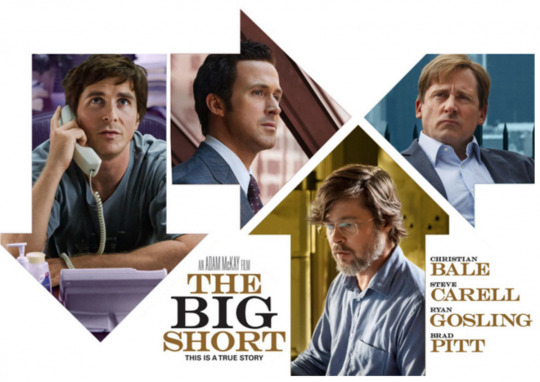

the way this is framed, like no one else could see it coming. but OH MY FUCKING GOD. yes we could!! we KNEW about all the subprime mortgages. we SAW house prices climbing up astronomically.


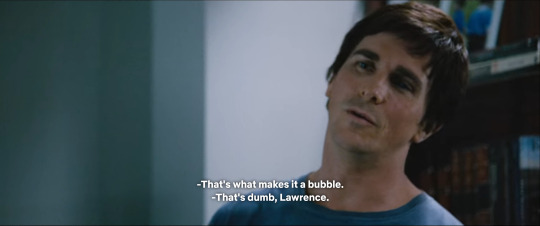
they just had people go out to miami in this movie to check on homeowners in these mortgage bonds.... i'm fucking losing my shit because
I OWNED A HOUSE IN MIAMI IN 2008*
if you were paying attention at all, you knew about the housing bubble. it was fucking insane. how could some fucking 28 year old IT person in miami know about this and UGH--
listen. if the bernie madoff story taught me anything, it was that the desire for money makes people put massive blinders on. to things they should really know better about, considering their JOB is to know these things.
so yeah. people were talking about it, it's not like i had my nose to the grindstone researching. i was just paying attention to the news and the housing market around me. but $$$$ > everything
it was motherfucking disgraceful what they did to people, getting them into these horrible loans and fucking their lives over.
aaaAAAHHHHHHH
*(bought the house with ex in 2003 before all this, was a traditional fixed rate 30 year. got divorced, he bought me out of the mortgage and had to try to sell the house post-crash. did eventually sell, at a small loss)
15 notes
·
View notes
Text
"The final stages of capitalism, Marx wrote, would be marked by developments that are intimately familiar to most of us. Unable to expand and generate profits at past levels, the capitalist system would begin to consume the structures that sustained it. It would prey upon, in the name of austerity, the working class and the poor, driving them ever deeper into debt and poverty and diminishing the capacity of the state to serve the needs of ordinary citizens. It would, as it has, increasingly relocate jobs, including both manufacturing and professional positions, to countries with cheap pools of laborers. Industries would mechanize their workplaces. This would trigger an economic assault on not only the working class but the middle class—the bulwark of a capitalist system—that would be disguised by the imposition of massive personal debt as incomes declined or remained stagnant. Politics would in the late stages of capitalism become subordinate to economics, leading to political parties hollowed out of any real political content and abjectly subservient to the dictates and money of global capitalism.
But as Marx warned, there is a limit to an economy built on scaffolding of debt expansion. There comes a moment, Marx knew, when there would be no new markets available and no new pools of people who could take on more debt. This is what happened with the subprime mortgage crisis. Once the banks cannot conjure up new subprime borrowers, the scheme falls apart and the system crashes.
Capitalist oligarchs, meanwhile, hoard huge sums of wealth—$18 trillion stashed in overseas tax havens—exacted as tribute from those they dominate, indebt and impoverish. Capitalism would, in the end, Marx said, turn on the so-called free market, along with the values and traditions it claims to defend. It would in its final stages pillage the systems and structures that made capitalism possible. It would resort, as it caused widespread suffering, to harsher forms of repression. It would attempt in a frantic last stand to maintain its profits by looting and pillaging state institutions, contradicting its stated nature."
https://www.truthdig.com/articles/karl-marx-was-right-2/
18 notes
·
View notes
Text
PINNED POST!
Oh hey, I should make a pinned post. Might be a good idea.
Hi, I'm Smokey.
ABOUT ME
I'm a dragon. I used to write a hell of a lot and I'm trying to get my mojo back. Burnout is a serious ass bitch.
I don't identify as trans offline, but to quote Thought Slime:
"I'm not fancy, I'll use whatever pronouns ya got lyin' around."
So, you can use: He/She/Any/All
My favorite pronoun joke, since I live in a particular state, is:
"My pronouns are yee/haw."
I do however stan all my trans brothers, sisters, and non-binary siblings. You better respect trans folks or your pronouns are gonna be was/were.
👴👵HOW OLD AM I👵👴
A lotta of folks put "AGE IN BIO OR YOU'RE BLOCKED" or "MINORS DO NOT INTERACT" or something like that.
Here's my answer. I'm an elder millennial.
If that's not good enough, here. I'm older than this:

No, I'm not going to put my actual age in my bio.
No, I'm not going to put my birth year in my bio.
If "Elder Millennial" or the "I'm older than $Movie" isn't good enough, well, sounds like a 'you' problem. Sorry.
"yOu cOuLd bE lYiNg aBoUt aLl oF tHat!"
So could someone who put a number in their bio.
🪄✨🌈POLITICS🌈✨🪄
I live in the United States (for my sins) and I'm a frothing, foaming, shrieking, screaming leftist.
Being an elder millennial that lived through:
A) 9/11 (I was in high school at the time)
B) 3 consecutive, once-in-a-lifetime, economic disasters (2000's oil price bubble, 2007-2010 subprime mortgage crisis, 2020 stock market crash)
C) The pandemic (and seeing people lose their fucking shit and prove that zombie movies are ENTIRELY plausible)
D) Just... well... everything that's happened with my country's government at various levels
...You could say I've been radicalized.
So, let's get the obvious political talking points out of the way and watch my follower count shrink a bit!
✊🏿Black Lives Matter✊🏿
🏳️⚧️Trans rights are human rights🏳️⚧️
🏳️🌈Stonewall was a riot🏳️🌈
Sex work is real work
Forced birth is a form of torture
Cars suck
Give us public transport, walkable cities, & high speed rail
N@zis can fuck right the hell off into a god damned volcano
Same with t3rfs, biological essentialists, crypto douchebags, "AI" techbro fucksticks, and libertarians who think age of consent means "mental maturity"
Palestine will be free
This doesn't make it okay to be an antisemitism
Supporting Palestine does not mean "Eradicate the Jews"
Protesting antisemitism does not mean protesting Palestine
The Israeli State does not equal The Israeli People
Hamas does not equal The Palestinian People
Trumpists and MAGA are fascists and white supremacists
Same with Qanon
Same with all the far right schmucks like the oath keepers, the 3 percenters, the proud boys, the KKK, and other similar groups
Capitalism is just feudalism with extra steps
When forced to choose between money and a sustainable world, Capitalists will always choose money and let the rest of us burn
Eat the fucking rich
I believe in pursuing the maximum amount of freedom for the maximum number of people
This is, of course, not a complete list.
Heh, I'm sure that'll piss of a LOT of people. And I'm totally down with that. If you're offended by any of this, please, cry some more. And feel free to leave nasty comments or mean asks or whatever. Just lets me know who to block! Thank you for outing yourself!
If you wanna show solidarity with any of this, just reblog with a 🐉or a 🐲. Why a dragon? Because dragons are cool. No I'm not biased.
⭐WHAT YOU CAN EXPECT ON THIS BLOG⭐
I'm probably going to include a broad mix of things. Some of it will be suitable for all audiences, but a lot of it VERY MUCH NOT.
Things I will likely reblog:
Funny memes
Important news/posts/political updates
Wholesome stuff
Plenty of generally queer affirming stuff
This includes aro/ace folks, ya'll are valid too
Plenty of explicitly trans affirming stuff
Art that I like (cute)
Art that I like (impressive)
Art that I like (adult/kink related)
Adult/kink related posts in general
Furry stuff
I would say "LOTS AND LOTS OF FURRY STUFF" but it feels like Tumblr isn't all that prime a spot for furries, but I stan what I can when I find it
🫷You said adult/kink--is this a PORN blog!?!🫸
Not explicitly, because Tumblr is a coward. I'm old enough to remember when this place used to allow straight up porn. Then the great puritanical purge happened. Still, this blog stans sexytimes and those who create stuff in that vein.
Kinks/fetishes you'll see me reblog (if I find it and I like it):
Vore (Soft, safe, endo, almost exclusively consenting)
Various forms that can fall under this, like unbirthing
Pregnancy (fpreg, mpreg, nbpreg, tpreg, it's all good)
Transformation
Gender transformation
I honestly don't know if this is the right term for this
Someone's sex/gender changing through sciencey or magical means
Big strong dudes/ladies/enbies
Twinkish dudes/ladies/enbies
Size difference
CONSENT. I HAVE A HUGE CONSENSUAL KINK.
ENTHUSIASTIC CONSENT IS HOT.
NOT EVEN REALLY AS A KINK BUT JUST KNOWING & UNDERSTANDING THAT THE INVOLVED PARTIES ARE INTO WHAT'S HAPPENING IS SUPER FUCKING IMPORTANT.
Other weird things that I can't think to include here
All of this is stuff that I've written smutty stories about in the past (and I'm trying to get back into the swing of writing, again, burnout is a bitch). If you wanna know more about that, feel free to ask about it.
Things I am NOT into and will almost assuredly avoid:
Vore (Hard, cruel, fatal)
Pregnancy, specifically birthing
Non-consensual stuff
Piss, scat, vomit, blood
Omegaverse
Macro/Micro aka Giant/Giantess
Underage characters (minimum age: 18)
"Aged Up" characters that are clearly just an excuse to get around the underage problem
This is, of course, not a complete list.
DNI ACCOUNTS
Minors
Porn bots
Fascists, racists, t3rfs, zionists, ✨CHRISTIANS™✨
Crypto assholes
"AI Art" and ChatGPT assholes
This is, of course, not a complete list.
I think that's plenty to put in a pinned post... probably too much, very TL;DR I'm sure. But whatever. If someone complains to me about something that they could have learned by just reading it here, well... it's their own damn fault.
Anyway, be kind and stay weird.
6 notes
·
View notes
Text
Regular readers of this column know that I’m not inclined to be alarmist. Although there are times when I worry about the costs and risks of certain foreign-policy decisions, I tend to push back on the tendency for foreign-policy experts to inflate threats and assume the worst—but not always. Sometimes, the wolf really is at the door, and it’s time to start worrying.
What’s troubling me today is the gnawing fear that we are living through a series of disruptions that are overwhelming our collective ability to respond. World politics is never completely static, of course, but we haven’t seen as serious a sequence of shocks in a long time. We’re accustomed to thinking human ingenuity will eventually provide solutions, but as political scientist Thomas Homer-Dixon warned many years ago, that reassuring assumption may not apply when the number of problems to be solved becomes too large and complex.
Just how many shocks can the system stand? Let’s take them in chronological order.
The breakup of the Soviet empire
Although the collapse of the Soviet Union and the velvet revolutions in Eastern Europe were positive developments in many ways, they also created considerable uncertainty and instability, and they opened the door to political developments (such as NATO enlargement) that still reverberate today. The breakup led directly to a war between Azerbaijan and Armenia, contributed to the dissolution of Yugoslavia and subsequent Balkan wars, encouraged an unhealthy sense of hubris in the United States, and reshaped politics in Central Asia. Loss of Soviet patronage also destabilized governments in Africa, the Middle East, and even the Americas, with unpredictable and sometimes unfortunate consequences. History didn’t end; it just headed down a different track.
China’s rise
Americans initially thought the unipolar moment would last a long time, but a new great-power rival emerged almost immediately. China’s rise is not a sudden or unexpected shock, perhaps, but it has still been extraordinarily rapid, and most experts in the West misread what it portended. China is still significantly weaker than the United States and faces serious headwinds at home and abroad, but its impressive economic growth, rising ambitions, and expanding military power are undeniable. Economic advancement there has also accelerated climate change, affected labor markets around the world, and helped trigger the current backlash against hyper-globalization. Its growing wealth and power improved the lives of the Chinese people and benefited others as well, but it is still a shock to the existing global order.
The 9/11 attacks and the global war on terrorism
The terrorist attacks that destroyed the World Trade Center and damaged the U.S. Defense Department in September 2001 completely transformed U.S. foreign policy, and the United States found itself trapped in a war on terrorism for more than a decade. This event led directly to the toppling of the Taliban in Afghanistan and the invasion of Iraq in 2003, and the two so-called forever wars eventually cost the United States far more blood and treasure than it had lost on that fateful day. The war on terrorism also destabilized countries throughout the greater Middle East and unintentionally spawned groups such as the Islamic State, whose actions aided the rise of right-wing extremism in Europe. It also accelerated the militarization and polarization of U.S. domestic politics and the mainstreaming of right-wing extremism in the United States—a major shock by any measure.
The 2008 financial meltdown
The collapse of the subprime mortgage market in the United States triggered a financial panic that quickly spread around the world. Wall Street’s supposed “Masters of the Universe” turned out to be as fallible (or corruptible) as anyone else, and although the people who caused the debacle were never held accountable, they could never speak with the same prestige and authority that they had before the crisis erupted. Europe suffered a sharp recession, a protracted currency crisis, and a decade of painful austerity, giving populist parties another political boost. Chinese officials also saw the crisis as a telling sign of Western decline and an opportunity to expand their own foreign-policy ambitions.
The Arab Spring
It sometimes seems nearly forgotten, but the Arab Spring was a tumultuous event that toppled governments in several countries, briefly kindled hopes of widespread democratic transitions, and led to civil wars in Libya, Yemen, and Syria that are still being fought today. It ended with authoritarian crackdowns (known as the “Arab Winter”) that reversed nearly all of the gains that reformers had made. Like the ill-fated Revolutions of 1848 in Europe, it was a “turning point at which modern history failed to turn.” But it consumed lots of top decision-makers’ time and attention, tarnished the reputations of a number of top officials, and led to considerable human suffering.
The global refugee crisis
According to the United Nations High Commissioner for Refugees, the number of “forcibly displaced” persons rose from about 42 million people in 2001 to nearly 90 million people in 2021. Refugee flows are themselves a consequence of some of the other shocks we’ve experienced, but they exert profound effects of their own, and the problem defies easy solutions. As such, they constitute yet another shock that governments and international organizations have struggled to address in recent years.
Populism becomes popular
The year 2016 marked at least two shocking events: Donald Trump was elected president of the United States and Britain voted to leave the European Union. Both events defied expectations, and each turned out to be as bad as opponents had feared. Trump proved to be every bit as corrupt, capricious, narcissistic, and incompetent as he had appeared to be during the campaign, but even his severest critics underestimated his willingness to attack the foundations of American democracy. Indeed, more than two years after his electoral defeat and facing multiple legal challenges, Trump continues to exert a poisonous effect on U.S. political life. Brexit had a similar impact in Great Britain: Not only did leaving the EU do considerable damage to the British economy (precisely as opponents had warned), but it accelerated the Conservative Party’s flight from reality, leading to the cartoonish and serially dishonest antics of former British Prime Minister Boris Johnson and the utter trainwreck of Prime Minister Liz Truss’s brief tenure at No. 10 Downing St. Put your schadenfreude on hold, please: It is not good for anyone when the world’s sixth-largest economy is governed by such a succession of blundering buffoons.
COVID-19
What’s next? How about a global pandemic? Experts had long warned that such an event was inevitable and that the world was not prepared for it, and they turned out to be all too prescient. At least 630 million people have been infected worldwide (the actual number is doubtless higher), the official global death toll now exceeds 6.5 million, and the pandemic has had punishing effects on trade, economic growth, educational achievement, and employment in many countries (especially in the developing world). Work-life patterns have been disrupted, governments have had to adopt emergency measures to save their economies, future productivity growth has almost certainly been reduced, and a combination of loose money policies and supply chain disruptions have helped trigger the persistent inflation that governments and central bankers are now struggling to contain.
The war in Ukraine
We still do not know what the full impact of Russia’s invasion of Ukraine will be, but it won’t be trivial. The war has inflicted enormous damage on Ukraine, threatened existing norms barring the acquisition of territory by force, exposed Russia’s own military deficiencies, sparked what may turn out to be a serious European effort at rearmament, worsened global inflation, and raised the risk of escalation (including the possibility of nuclear weapons use) to a level not seen in decades. Relations between Russia and the West have been deteriorating for some time, but few observers anticipated that this would lead to a major war in 2022 and dominate the foreign-policy agenda in Washington and Europe.
Climate change
Lurking behind many of these events is the slow-motion shock of climate change. Its impact is now being felt in worsening natural disasters, increased civil conflicts, and rising migration from heavily affected areas. Efforts to immigrate or adapt to rising atmospheric temperatures are going to be expensive, and global cooperation to reduce greenhouse gas emissions is faltering. All told, the scope of climate change is one more shock that governments ignored for too long and will have to deal with for decades to come.
It would be easy to add some other events to this list, and it would be a challenge to address even one or two of them successfully. Dealing with such a rapid succession is proving to be nearly impossible.
The first problem is bandwidth: When too many disruptions occur too quickly, political leaders don’t have the time or attention span to develop creative solutions or weigh alternatives carefully. The odds that they’ll respond badly increase. Nor do they have adequate time to assess how well their chosen solutions are working, making it harder to correct errors in a timely fashion.
Second, because resources are finite, dealing with the latest shock properly may be impossible if previous crises have used up the assets that are needed today. The more problems leaders face, the harder it will be to give each one the attention and resources it requires.
Third, when successive shocks are connected, trying to solve one problem can make other problems worse. It made good sense for Europe to stop buying natural gas from Russia following the invasion of Ukraine, for example, but this step increased energy costs (making inflation worse) and burning coal instead of natural gas increases greenhouse gas emissions and exacerbates climate change. Focusing laser-like on helping Ukraine may be the right thing to do, but it takes time and effort away from the problems posed by a rising China. There is a good case to be made for limiting China’s ability to use Western technology to enhance its military power, but imposing export controls on chips and other forms of advanced technology impairs U.S. economic growth and will hurt some U.S. businesses, at least in the short term. The more problems you’re trying to solve all at once, the greater the danger that responses to one will undermine your efforts to deal with others.
Finally, unless leaders are extremely lucky or unusually skillful, trying to handle multiple shocks tends to erode public confidence in the entire political system. Citizens may rally around the government when a single, clear-cut crisis erupts (as Ukrainians have in response to Russia’s assault), and policy successes can help convince them that the people in charge really do know what they are doing. But when public officials are facing more shocks than anyone could handle and repeatedly fail to deliver good results, citizens will lose confidence in them (and in the experts they are relying on for advice). Instead of trusting people with the relevant knowledge, experience, and responsibility, publics become more dismissive of expertise and vulnerable to conspiracy theories and other flights from reality. Of course, this problem will be even worse if those in charge are visibly dishonest, corrupt, self-serving, and fully deserving of public scorn.
I don’t have a happy ending for this story, just a final thought. We’ve been living in an era where “move fast and break things” was the mantra—and not just in the fast-moving world of digital technology. Given the shocks we’ve endured in recent years, a better motto for the moment might be “slow down and fix stuff.” I hope we get the chance, and I hope we don’t blow it.
19 notes
·
View notes
Text
KinnPorsche: Episode 13
notes: Spoilers! content warning: mentions of suicide Ep 12 /// TOC /// Ep 14 Part I
In this episode: Hot tub sex, international bank fraud, crashing your own funeral, introducing your boyfriend to your dead parents and putting all your plot twists in the last 5 minutes.

We finally get “that scene” from the trailer. You know the one I mean.
Timecoded Review
1:52 These two.

dude you abducted someone and tortured them- you kind of are a freak

unless you're a kidnapping torturer, in which case maybe don't be true to yourself
2:57 Kinn and Porsche move back to bodyguard HQ. They have soup w/dad, but Porsche can't stop thinking about the picture from the end of the last episode- what's Dad's connection to his family? Is it the fish maw soup?

5:54 Vegas makes lunch and his dad comes in to ruin it

14:30 Tankhun, I love you. Tankhun is apparently clairvoyant as well as being a fashion icon. He senses something is amiss with Pete.

17:00 Pete's had enough of the hostage lifestyle. He gets a knife away from Vegas and threatens to kill himself. This relationship makes absolutely no sense to me.

20:00 Finally, Pete escapes!

21:15 Tankhun has roped the bodyguards into holding a memorial service on the lawn of the compound. He's worried Pete's soul won't be able to find his way back.

Tankhun is a very conscientious friend making sure Pete has friends to accompany him as well as an eternally full ATM.

Pete interrupts his own funeral.


But Tankhun doesn’t care if Pete is an undead revenant or not; he’s just glad to have him back.

27:23 Kim tries to call Chay, Chay won't answer. Kim looks through old photos of Chay and realizes he is catching feelings.


31:00 Vegas sits sad and alone in his dungeon. Let's see if I can conjure up any sympathy for him. Yeah... no.

34:38 Worst idea ever- Tankhun taking Pete out to Yok's

36:00 Porsche has turned to Vegas for help with the photo- but first he gives him a couple punches for Pete.


This partnership will end well, I know it.
39:50 Pete and Vegas have a reunion that's pretty much what I expect from them.

43:30 Kinn takes Porsche to his parents' graves, and they have a very sweet scene with Porsche introducing Kinn to his parents.



47:26 ITS THE SCENE FROM THE TRAILER Y'ALL! They bang it endlessly in the pool, while the Deutsche Bank sign (and probably all the neighbors) bear silent witness. These actors have really earned their pay because we've seen pretty much every square inch of them at this point.

This seems like a great opportunity to remind you that Deutsche Bank was almost solely responsible for the subprime mortgage crisis that caused a global financial meltdown.

Deutsche Bank was also found guilty of laundering money for its Russian clients- 10 billion dollars worth in fact.

"It was a grave mistake to take Jeffrey Epstein on as a client in 2013." -Deutsche Bank

Basically what I'm saying is that if Satan exists, he would definitely have an account at Deutsche Bank. But don't take my word for it- here's a top ten list of their most egregious scandals- so far.
52:05 Vegas has found some info about Porsche's family. Porsche wakes up Chay and they sneak out of the compound.

55:57 Wow if I ever tell you I'm laying low in Thailand, catch me at the temple. Everyone seems to hide out here.

We meet up again with Uncle Bitcoin who tells Porsche that his parents were shot- they weren't in a car wreck. But who shot them?! We don't find out because Uncle Bitcoin himself is shot. Porsche has some flashbacks to his childhood.


59:18 Dad is accosted by Porsche who demands to know why he shot his parents. Wait- is that something he remembered from the flashback? Dad reveals a secret:



So Porsche’s mom was Dad’s sister, making Porsche and Kinn cousins.
Bonus Round: Dad’s Hobbies
Dad appreciates work/life balance. So far we have seen Dad:
raising fighting fish
making pottery
playing chess
playing the piano
Ep 12 /// TOC /// Ep 14 Part I
Master list of all recaps
39 notes
·
View notes
Note
Learn How To Finance, You Absolute LEECH!
*throws empty water bottle at Aqua*

"I DON'T HAVE ANY EQUITY! DO I LOOK LIKE I KNOW WHAT A SUBPRIME MORTGAGE IS!?"
3 notes
·
View notes
Text
2008 Financial crisis dumbed down.
Watched 'The Big Short' (again), and I wanted to sum it up for people who didn't get it (cuz I did NOT the first time around).
About 2 years-ish before this all went down, a super smart guy noticed inconsistencies in what the banks AND (eventually) the government claimed about subprime (another word for weaker credit) home loans. He noticed that the weakest that were most likely to default were packaged up so they seemed more appealing, but they were way worse than the government was rating them at (in the movie, rating approval standards and practices lady basically says if we do not give them good ratings, they'll <the banks> just go down the street to a competitor, which is NOT something you want said by a government sanctioned organization.) The banks & the raters were approving everyone cuz it made them money right then and there. Both the banks and the rating's agency which answered to the government. That means THREE different organizations set up the dominoes. Big banks, the ratings board, and the government for not keeping either in check. Maybe not knocked them down, but set them up.
The smart guy realized: the lower ones rated we will call them a C, were actually closer to E's, and thus, also brought down everything above them. AAA goes to A. AA to C. Etc. (something like that). Loss of rating, loss of money. But with the banks getting higher ratings, they would look like they had stronger assets. Thus more money. More to wager. And how did they inflate this? The casino. They took those low level packages, and took bets on if they would rise or fall. THEN they took bets on THAT bet. Seriously; it is as fucking stupid and crazy as it sounds. As the movie said, it's highly complex and hard to understand BECAUSE they want you to feel like they're the only ones who can operate/navigate it. They make it difficult so you have to come to them.
So smart guy (and a few others) convinced the banks to do the stupidest thing I have ever heard: the banks created this whole new thing for them in which they bet, HARD, that these super low level home mortgage packages would utterly fail (and some mid/top level. Because remember, if the bottom falls out, everything above is then lowered. So you can bet on all of it going down, which is what happened.) Like 25 to 1 odds. And it did take 2 years, but eventually, it did fall, and create new billionaires.
The movie exaggerated a lot, but some of the main themes are:
1-the bankers NEVER cared if they failed cuz they ALWAYS knew they were 'too big to fail' (to which I've always replied: Should have failed. And gone to the locals.)
2-the bankers were not SMART, just greedy and careless.
3-banks are casinos. I mean, the complexity yet stupidity of that whole betting scheme. And then creating a WHOLE NEW casino game without checking the odds? Geez. The House lost. Banks should not be able to gamble with YOUR livelihoods. Clearly, they have nothing to lose, but WE DO!
4-Banks do control the government. Probably the federal reserve too. That's never discussed.
5-Again, how much money was lost AND created from NOTHING but...bets? That is creating nothing.
6-The movie said a fact (I think) that fucks with my head. 2 of the younger ones just got good news about their bet. Cheering, dancing, etc. Brad Pitt's character gets PISSED, and tells them to stop it. He points how many lives are going to be ruined. Jobs lost. Homelessness. Then says 'Did you know for every 1% in the rise of unemployment, 40,000 people die?' WHAT!? Everything should be locally owned and controlled. Every business worker owned. FUCK that shit.
7-The government changed nothing to stop this from happening again. IMO-about to drop hard, same way, but with student loans and car loans. I know more people who have car loans than house loans...you think they learned? Fuck no. It's a casino, and they will never stop playing the game till we check if their games are rigged (they are.)
8-When this all started to fall apart, the shady thing banks did was take these worst of the worst low level packages, sell them off, THEN report the actual numbers they were rated at, fucking whoever just bought them. AND they initially refused payout on the MASSIVE bets they just lost until they could get the money.
I just...what bugged me was for how many people placing billions on the line, losing multi millions in losses in the 2 years till it actually occurred, why NONE of the banks looked into these people's backgrounds, histories, etc? Like, if a guy comes up to me and says 'I want to give you money for two years on a stupid ass bet', if that same guy got stupid rich predicting the market, HE FUCKING KNOWS SOMETHING. Intentional negligence.
Solid movie. A little showy in places it didn't need to be. But I think I just dumbed down banking for you, and we are dumb for allowing this to continue to exist. If we bailed them out, we own em'. That's it.
tl;dr: the banks acted LITERALLY like casinos, and lost big. So the USA government bailed them out and the banks KNEW it was going to happen which is why they could operate like a casino. And still do.
Update. 1-here's the best scene to sum up their scam part 1 (taking bets on their low levels rising/falling, and bets on THOSE bets). This is what started everything. The ratings technically did, but this made that 10x worse.
youtube
part 2 on how standards and practices rigged the ratings:
youtube
and finally part 3 explaining how it set up, and how to bet against the banks.
youtube
ps-fun note. I forgot a HUGE bombshell they GLOSS over practically. Absolutely NO LAWS saying you can't go work at a big bank after working in standard's and practices. In other words, you give them good ratings, they give you a couchy job 5 years later with a stupid big bonus. EVERYTHING IS CORRUPT! But it makes sense. If you run the country and have inside info, you can still operate in the stock market...it's a big circle jerk.
#bank#banks#banking#the big short#2008#2008 financial crisis#bailout#bank of america#boa#casino#casinos#no more big banking#federal reserve#wall street#Youtube
12 notes
·
View notes
Text
Crisis Economics, Free Flow of Commerce1. Oil, housing, transportation, and communications must be addressed to where the consumer benefits and not the market profits. Supply is better than demand with free trade and choices for the consumer.
2. Credit crisis. If the government gets on us about public debt, why don't they set the example?
3. Insurance must be covered like banks so they do not fail, insured insurance covered by the government.
4. Tech bubbles are dangerous. To much hype and price testing.
5. Living beyond needs. Domestic spending goes further than foreign policy spending. Diplomacy spends less than war, war as the last resort
6. Markets are regulated by supply and demand and consumer, leave it alone, no subsidies
7. Crisis will come and go, such to with economic bubbles.
8. Gold is hyped too much, it's like oil, but both will see their future dwindle with time.
9. Inflation is when we try to control the flow of a product or services, over-regulation, union,s nationalistic greed for the nation-state, over-taxed corporations and people, embargoes, sanctions, wars, Deflation is great for the consumer, creates sales, etc. Interest rates should react upon inflation and deflation after the fact.
10. BRIC (Brazil, Russia, India, China) vs WTO, USA, and the EU. Can't we all just get along? Let the market free flow and give the global consumer what they want. We do not need a war, nationalisms, isolationism, extremism, fanaticism, price gauging, subsidies a free-trading world, consumer-driven without government interference to protect industries and services,
11, Bring back subprime mortgages. Why? Because when there are more houses on the market than homeless people, Houston! We have a problem. We can bail out a bank, but we can't bail out the common citizen.
12. Moral hazards. What are morals? Societal regulation for a majority who are self-righteous. Let society change through freedom and social flow and the economics of it will set the morals.
13. Global markets should be free flow, unregulated, non manipulated.
14, Taxes should be reduced, government spending should be not spent on wasteful wars, but on people, social security, maintaining a person from falling through the cracks to where they are homeless, food for those who cannot eat. Societal preventative maintenance.
15. The G20 should work together with the UN to establish the stability of the world and not just the nation-state.
16. I think the Chinese have the right idea of mixing capitalism with socialism.numbers in GDP do not lie!
0 notes
Text
Save Money With Small Signature Loans - Unsecured And Low Interest Rate
You might want to use a minor home improvement or for consolidating your multiple debts especially the finance cards. Usually, the credit cards have higher mortgage loan interest rates which create a higher monthly outflow for your borrowers.
If a person a home, real estate, stocks and bonds, and a late model car up as security, you could land financial of equal to $75,000 having a payback term of upto 25 years and years. Unsecured loans can contribute to a loan of about $25,000 max. The amount is significantly lower in order to the risk involved towards the lender without security.
If you are in the subprime lending category, things get even more complicated. As you know, subprime lending has tightened up greatly over weight loss months (and is now almost nonexistent in businesses market). However, if an individual employed, you'll be able to still find cash to pull up quickly - you simply have to be ready to pay a steep price of interest for it.
Do a simple search from the net and you will find a associated with companies that supply refinancing chance. Choose a few and compare the rates and then decide 1 side for your refinancing desire.
If you are using the house as collateral, then this will actually be called a 2nd mortgage, a person would use the equity inside your home to secure the loan. This is most often done at any bank, or mortgage loan office.
Similar to such borrowers, tenants too are at the receiving end when they wish to avail college loans. It is true that tenants cannot offer their home as secured. Besides, this, lenders are fearful of such borrowers as they are not sure of if their funds will be repaid promptly. Such borrowers cannot manage to pledge any asset as collateral with the loan. However considered risky borrowers. Essential risky selection for the providers. Now, such borrowers can find some solace in unsecured personal lending options. ok바로론대부중개 allow borrowers to any in their needs.
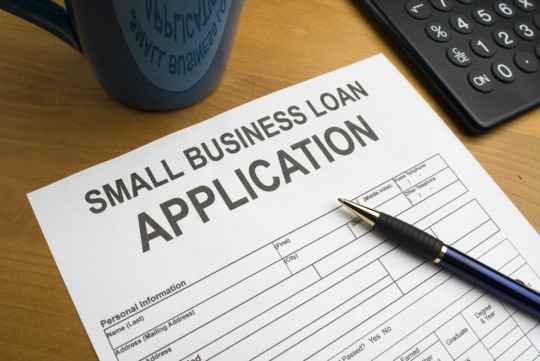
Shopping important because rates and terms and requirements vary wildly from bank to bank and it is important that you identify greatest bankloan of those according inside your financial desired. In fact, browsing helps make it especially easier for you find the perfect lender.
Be sure not to keep applying for several loans so that you can get a lower rate. When that credit rating report is pulled will cause points in order to become deducted out of your credit score. Just call different banks and discover what their APR range is for private loans and after in order to done researching, call financial institution that has got the lowest rate and apply with the whole bunch.
1 note
·
View note
Text
Henry Smith Reflects on FOMC's Past Interest Rate Actions
Perhaps history will give us a clearer picture of what impact the FOMC’s continued interest rate hikes will have on global financial markets and economies.
Since the 1980s, the FOMC has gone through five cycles of rate hikes, and this is only the sixth round.
The first cycle was 1983.3–1984.8, when the benchmark rate was raised from 8.5% to 11.5%.
The second round of interest rate hike cycle was 1988.3–1989.5, and the benchmark interest rate was raised from 6.5% to 9.8125%.
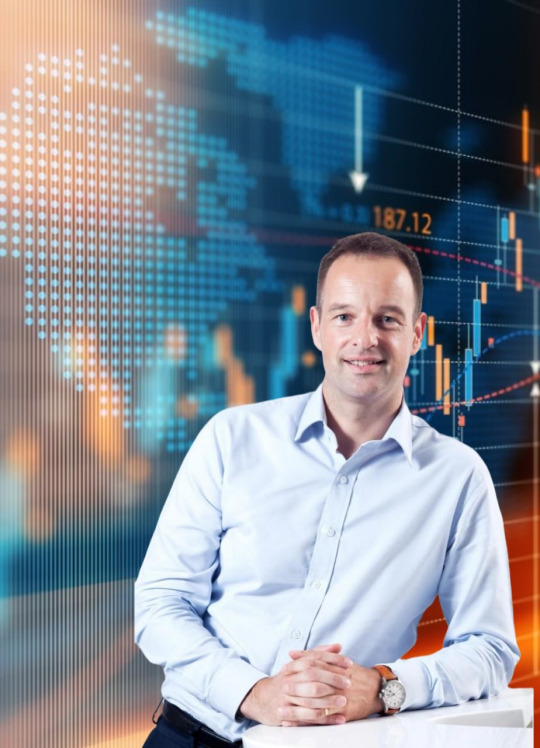
After these two cycles of interest rate hikes, there was no major turbulence in the financial market. A big reason is that before this, that is, from 1979, the US economy had a great Depression. Throughout the 1980s, it was only monetary adjustment in the stage of economic recovery, so the impact on the financial market was limited. However, in the following three cycles of interest rate hikes, the financial market experienced varying degrees of turbulence.
The third cycle of interest rate hikes was 1994.2–1995.2, when the benchmark rate was raised from 3.25% to 6%.
After the 1990–91 recession, unemployment remained high even as growth picked up. Falling inflation allowed the Fed to keep cutting interest rates to 3 percent. By 1994, the recovery was rekindling and the bond market was worried about a return of inflation. Ten-year bond yields rose from just over 5 per cent to 8 per cent when the Fed raised interest rates from 3 per cent to 6 per cent to bring inflation under control and bond yields fell sharply. The rate hike was also cited as one of the factors that led to the Asian financial crisis in 1997.
The fourth round of interest rate hike cycle was from 1999.6 to 2000.5, with the benchmark interest rate raised from 4.75% to 6.5%.
At that time, the Internet bubble was expanding. In 1999, growth was strong and the unemployment rate fell to 4%. After the Fed cut interest rates by 75 basis points in response to the Asian financial crisis, the dot-com boom led to an increase in it investment and a tendency for the economy to overheat. The Fed tightened monetary policy again, raising interest rates from 4.75% to 6.5% after six hikes.
In 2000, after the bursting of the Internet bubble and the collapse of the index, the economy fell into recession again, and the “9/11” incident further worsened the economy and the stock market. The Fed immediately turned, and began to cut interest rates sharply from the beginning of the next year.
The fifth round of interest rate hike cycle was 2004.6–2006.7, with the benchmark interest rate raised from 1% to 5.25%.
At that time, the housing market bubble emerged, and the previous sharp interest rate cuts triggered the US bubble. In the second half of 2003, the economy recovered strongly, and the rapid rise in demand led to the rise of inflation and core inflation. In 2004, the Federal Reserve began to tighten policy, raising interest rates by 25 basis points for 17 consecutive times, until reaching 5.25% in June 2006. Until the subprime mortgage crisis triggered the global financial crisis, the Fed again began to cut interest rates to near zero level until 2016.
Of course, there was a small interest rate hike cycle from 2016 to 2018, which was turned to interest rate cuts due to the outbreak of the epidemic in 2019. Therefore, the interest rate hike cycle lasted relatively short, with a cumulative interest rate increase of 2.5%. The global financial market was volatile, and the stock market saw a large correction.
The current interest rate hike cycle may be seen as a continuation of the 2016 cycle, which was disrupted by the pandemic.
From the perspective of the third interest rate hike cycle, it was near the end of the interest rate hike cycle or two years after the end of the interest rate hike cycle, and the global financial market experienced major shocks.
The Asian financial crisis, the bursting of the Internet bubble, the 2008 financial crisis, and the impact of the epidemic in 19 years.
And now it’s a continuation of the pandemic-era cycle of interest rate hikes, and now it’s coming to an end.
So between now and 2025, will global financial markets experience another bout of turbulence?
You know, history repeats itself, that’s the law of economics, and that’s why I’m telling you about business cycles.
Of course, history will not simply repeat itself. The current global economic and political situation is more complex than before.
Moreover, this is a continuation of the interest rate hike cycle in the pandemic era, and there are more accumulated problems. It is obvious that the global debt level is the highest in history, and the degree of currency overissuance is also the largest.
So if there is a financial market turmoil after the end of the interest rate hike cycle, then I think the impact or damage will be the biggest.
I don’t know how many of my friends in this group have experienced the Asian financial crisis, the Internet bubble, the 2008 financial crisis. If history repeats itself, are you ready?
This is a question worth thinking about, if you do not have corresponding countermeasures, then when the crisis really comes, you will become very passive.
Your wealth may be looted, your job may be affected, and your quality of life may be drastically reduced.
So I say to everyone, be prepared for danger in times of peace, be prepared for a rainy day, and look further ahead, so that you can become more calm.
As can be seen from the above discussion, each cycle of FOMC interest rate hikes and rate cuts is closely related to the development of the US economy, but more importantly, it is closely related to the trend of the US dollar.
Because the FOMC will raise interest rates every time, are accompanied by the tidal harvest of the dollar, because for the United States, there are three major hegemony: military hegemony, scientific and technological hegemony, financial hegemony, and financial hegemony, mainly is the dollar, so it is very important to read the dollar, read the dollar, you can read the world, read the dollar, you can read the wealth password!
The law of history also tells us that in the next few years, financial market turbulence is inevitable. And if the United States does not complete the harvest in 2026, the issuance of U.S. debt does not continue, and AI technology does not bring about a productivity revolution, then the problem is bound to explode.
Therefore, I would like to tell you that while the global economy and financial market are still calm, before you go to make more money, you should reserve more grain and grass for the winter, because the worst is not yet to come.
This is why the current stock market is not good, we buy individual stocks do not make money, I feel anxious.
Because I know that the future will be more severe, we need to face economic shocks, we need to face political turmoil, we need to face the potential collapse of financial markets and so on.
So, friends, now make a good effort to make money! Only when you have food in your hands will you not panic!
This cycle of interest rate hikes has been the largest ever, and the US economy has not experienced any problems so far. First, large enterprises made preparations in advance and saved a large amount of money when interest rates were low. Second, the epidemic has overproduced money and people’s savings have reached a record high of 2.1 trillion yuan.
But according to new research from the Federal Reserve Bank of San Francisco, those excess savings may even run out this quarter. By June, households held less than $190 billion in excess savings.
Without savings, consumption will suffer, and consumption has been the strongest driver of economic growth in the United States, so I think a recession is bound to come, perhaps in the fourth quarter of this year.
Therefore, now is the most urgent time for us to make money. Before the recession of the US economy comes, we should reserve more [grain and grass] to spend the next long winter!
I hope that you will have a long-term understanding of the next economic and financial forms. I hope that what I have explained will have a spiritual impact on every friend.
Well, perhaps the above question is far away, I hope that every friend is thinking deeply.
Dr. Henry Smith was born in Melbourne, Australia in 1979. He moved to the United States with his parents in middle school. He received his bachelor’s degree in finance from Columbia University. He received his M.S. and Ph.D. degrees in applied Mathematics from the University of Pennsylvania
Credentials:
Certified Financial Analyst (CFA), Certified Management Accountant (CMA), Certified Public Accountant (CPA). He has worked in Goldman Sachs and blackrock, mainly responsible for investment business in Hong Kong, and is now responsible for Lonton Wealth Management Center LTD (Lonton Wealth Management Company) in Australia.
0 notes
Link
#CAPSecurity#capsecurity#commonlaw#creditcarddebt#debtloanpayoff#debttermination#freeandclearmortgage#howtopayoffdebt#secretdebtpayoff
0 notes
Text
What Is a Stock Market Crash?
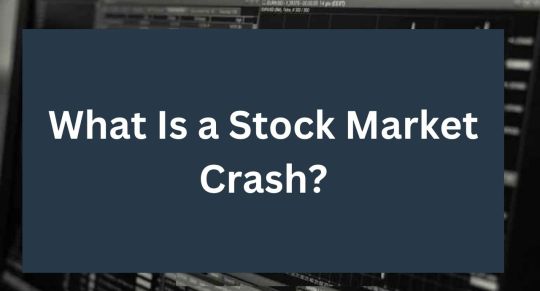
A stock market crash refers to a sudden and severe decline in the prices of stocks or other financial assets traded on a stock exchange. It is characterized by a rapid and widespread drop in market values, often resulting in panic selling by investors. Stock market crashes are marked by a significant and sustained decrease in market indices, leading to substantial financial losses for investors.
Key characteristics of a stock market crash include:
1. Sharp Decline in Market Indices:
Market indices, such as the S&P 500 or NIFTY 50, experience a rapid and substantial decrease in value over a short period.
2. Panic Selling:
Investors, fearing further losses, engage in mass selling of stocks, exacerbating the market decline.
3. Volatility:
Increased market volatility, with wild swings in stock prices within short timeframes.
4. Liquidity Issues:
Liquidity dries up as sellers outnumber buyers, leading to challenges in executing trades at desired prices.
5. Economic Uncertainty:
A stock market crash is often accompanied by economic uncertainty, triggered by factors such as economic recessions, financial crises, geopolitical events, or unexpected shocks to the system.
6. Cascading Effect:
The decline in stock prices may have a cascading effect on other financial markets, including bond markets and commodity markets.
Causes of a Stock Market Crash:
Economic Factors:
Economic recessions or downturns can lead to reduced corporate profits, causing a decline in stock prices.
Financial Crises:
Banking crises, credit market disruptions, or other financial system failures can trigger a stock market crash.
Global Events:
Geopolitical events, wars, natural disasters, or global economic shocks can impact investor confidence and trigger a market crash.
Speculative Bubbles:
The bursting of asset bubbles, where prices become detached from fundamentals, can lead to a sharp correction.
Black Swan Events:
Unforeseen and unpredictable events, termed "black swan events," can have a profound impact on financial markets.
Examples of Historic Stock Market Crashes:
1929 Great Depression:
The U.S. stock market crash in 1929 marked the beginning of the Great Depression, with widespread economic consequences.
1987 Black Monday:
On October 19, 1987, global stock markets experienced a massive sell-off, resulting in a single-day drop of over 20% in major indices.
Dot-Com Bubble Burst (2000):
The collapse of many internet-based companies led to a significant market correction in the early 2000s.
Global Financial Crisis (2008):
Triggered by the subprime mortgage crisis, the global financial crisis resulted in a severe stock market downturn and economic recession.
Impact of a Stock Market Crash:
Wealth Erosion:
Investors experience significant losses as the value of their investment portfolios declines.
Reduced Consumer and Business Confidence:
A market crash can lead to lower consumer and business confidence, potentially impacting spending and investment.
Credit Crunch:
Financial institutions may face liquidity issues, impacting their ability to lend, leading to a credit crunch.
Job Losses:
Economic downturns associated with market crashes can result in job losses and increased unemployment.
Government Interventions:
Governments and central banks may implement measures to stabilize financial markets and stimulate economic recovery.
One of the best way to start studying the stock market to Join India’s best comunity classes Investing daddy invented by Dr. Vinay prakash tiwari . The Governor of Rajasthan, the Honourable Sri Kalraj Mishra, presented Dr. Vinay Prakash Tiwari with an appreciation for creating the LTP Calculator.
LTP Calculator the best trading application in india.
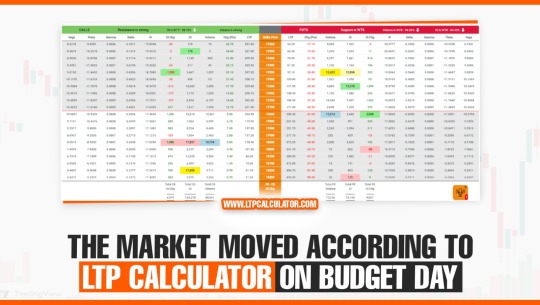
You can also downloadLTP Calculator app by clicking on download button.

Investors should be aware of the risks associated with stock market crashes and consider diversification, risk management strategies, and a long-term investment approach to navigate market volatility.
0 notes